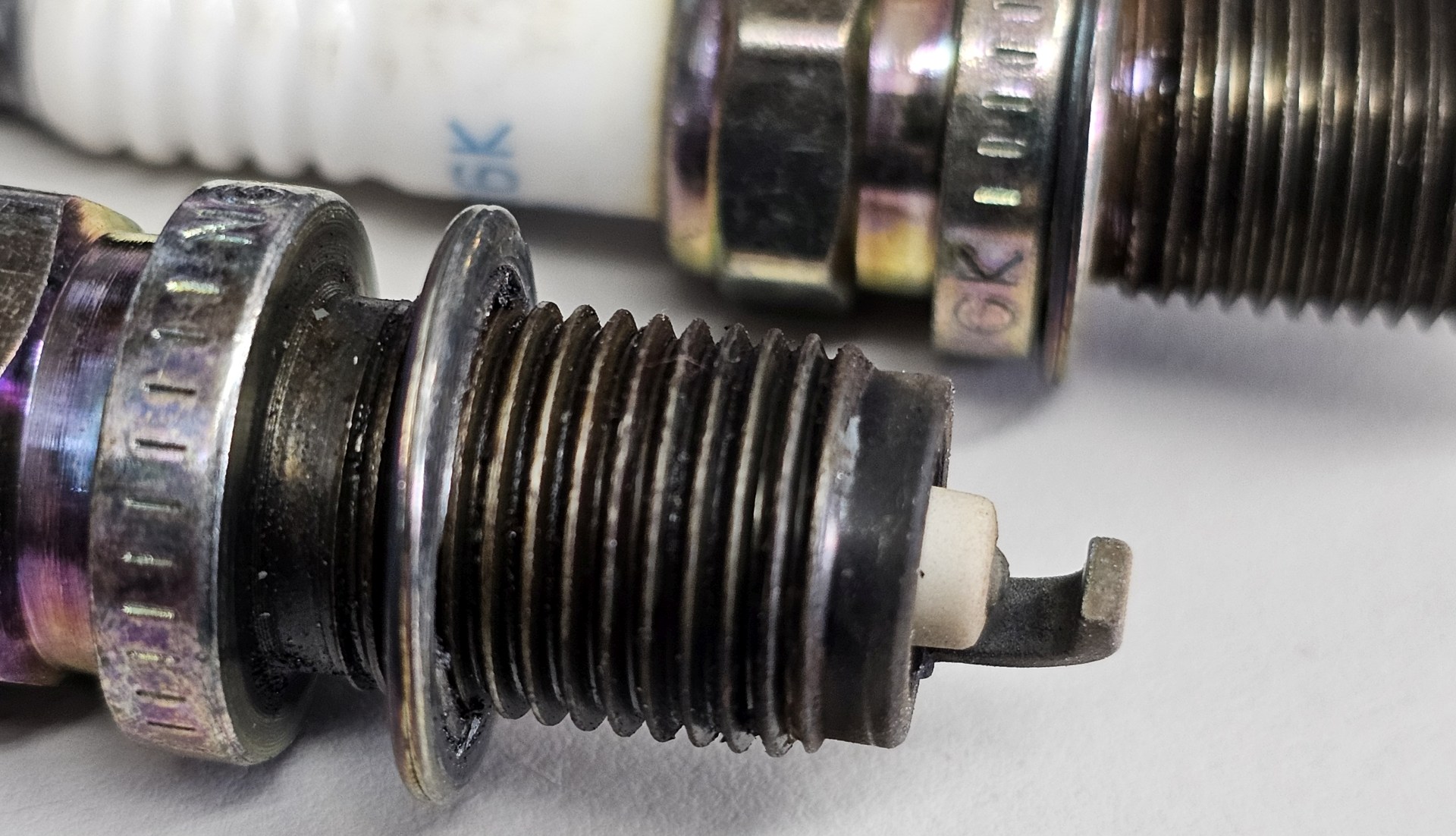The phrase “tune-up” is outdated, and it’s typically used these days when being lazy in description of vehicle maintenance, or used deliberately to obscure the nature of service you’re getting. This article is just a discussion of the phrase “tune up”. If you’re interested in what you should be doing to maintain your car, check out our page about servicing your car instead.
How much does a tune up cost?
This is a question which, if answered properly, takes a lot of time and a carefully organized answer. People usually ask this question when they’re trying to make financial plans, or maybe to compare the prices of Shop A to Shop B. Most of the time they just want a quick answer such as, “A tune up is $200”. The problem is that we have trouble giving people the quick answer they’re looking for. When we answer questions, we try to give technically accurate answers. “How much for a tune up” is a question that is difficult to answer because “what is a tune-up?” is a difficult question to answer.
What does a tune-up include?
One dictionary says a tune-up is “adjust an engine or mechanism so that it performs at maximum efficiency.”
Another dictionary says it’s “a general adjustment to insure operation at peak efficiency.”
So, the tune-up is some sort of freestyle adjustment or adjustments of the engine? The dictionary explanation of what should be adjusted is too vague to be useful. It’s difficult to quote for a job where there is no set list of things to do, and therefore no way to estimate the amount of time it would take. In addition to this, most modern cars have absolutely no manual engine control adjustments whatsoever. What kind of a tune up would a car like this get? Notice that neither of these definitions include any mention of replacing parts, oils, or fluids. And where are the spark plugs so many people think of as synonymous with tune up.
What do manufacturers recommend during tune-ups?
I’m sure many of you critical thinkers out there are thinking that my critique of the dictionary definition of a tune up is akin to attacking a “straw man” — a made-up version of an opponent’s argument that can easily be defeated. “Why aren’t you attacking the auto manufacturer’s definition of a tune-up?”, you may ask. Well, because there isn’t one. Toyota, Honda, Acura, Mazda, Nissan, Lexus, Infiniti, Subaru, Scion — none of these manufacturers recommends or defines a tune-up for any of their products. They all have scheduled maintenance, which is clearly defined in the owner’s manual and in the service manual. Isn’t this just a semantics game? Not really, when you are paying for a service, I think it’s very important to know what, exactly, you’re paying for.
If there is no such thing as a tune-up, why do so many mechanics offer tune-up specials?
I suppose it’s partly name recognition. There are a huge number of people who are looking to have their car “tuned-up”. I think many mechanics have decided not to fight it and go with the flow. Some in a benevolent way (where they make sure the car gets the service it needs and call it a tune-up), and some in a lazy way (where they do whatever they feel like doing a call it a tune-up).
If the word “tune-up” is not useful, why does it exist?
Once upon a time, tune-ups were a critical part of keeping a car running well. Carburetors had many adjustments (and were frequently needing adjustments), ignition points wore, and the ignition timing would change as a result. Valves would go out of adjustment (and still do on some cars). Due the unreliability of the older cars, predicting what was going to need adjusting when was very difficult. When an older car stopped running as well as it used to, a mechanic would look at the car and adjust whatever needed adjusting. The tune up really was a freestyle series of adjustments.
With every year new cars have been getting a little bit better. Engineers figure out new ways to make cars with fewer wearing parts, longer lasting parts, and automatic self-adjusting parts. Where once a car might need a periodic idle fuel mixture adjustment, now the computer monitors the air fuel mixture in real time and makes automatic adjustments as needed. Where once the ignition timing needed to be adjusted to account for distributor wear, now there is no distributor, and the computer changes the timing as needed.
The focus of a tune up used to be making the car run well again. This is no longer necessary on today’s car. If the car is not running correctly, it doesn’t need an adjustment — something is broken and needs to be replaced. Since today’s car adjusts itself, manufacturers recommend only scheduled maintenance. The focus of scheduled maintenance is ensuring longevity and preventing breakdown, not making the car run better.
So, what’s my point?
We’d rather not give a quick quote for a “one size fits all” generic tune up because it is unlikely that it will address all of a car’s service needs and is very likely to include items the car does not need. Every car has different service needs. Trying to find out what a given car will need is a process that will take some research and some time. We’d much rather spend the time to custom tailor a service for your individual car that is based on the manufacturer’s maintenance schedule, your car’s past service history, and our own experience with your model of car. It will save you money and insure your car gets all the service it needs. It will take a little bit of time, but it’s well worth it.
Additional reading:
